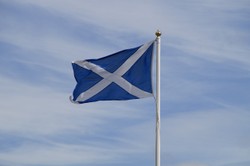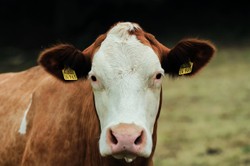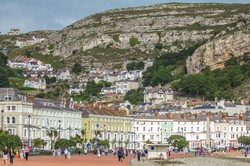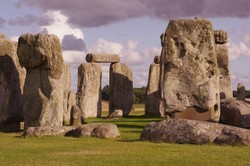.History is oft-written by the powerful, and much British history speaks of the perspectives of the dominant class, which is focused on Southern England. While Scots can on the whole be represented by official histories, the border folk are oft-times overlooked. This takes us to Moffatt's pet resentment, the origins of rugby. Moffatt played rugby at a significant level, though not internationally, and he resents the English appropriation of the game. I take umbrage here because I see this act of cultural appropriation as not an English act, but as the work of public schools, who propagated the myth that the game was invented at Rugby School in England. Moffatt is adamant that the game originated in Southern Scotland and Northern England, where it was known as Ba'. I am personally unsure about the invention, as it is clear that a form of rugby predates the game's adoption by public schools, the codification is a public school affair.
The book is a mine of interesting information about the borders and the community who lived on them. The border tale includes James Small, the inventor of a new and more effective plough that enabled more efficient farming, and this plough was instrumental in promoting Britain's agricultural revolution, though we never heard of it in the standard school histories. The border story includes the Reverend Adam Thomson, whose publishing company churned out cheap Bibles for the religious education of ordinary people for many years, until they were outcompeted by Eyre and Spottiswood, who were able to undercut the smaller border company.
The book goes into impressive detail about the English and Scottish wars in the Plantagenet and Tudor periods and is not afraid to describe events as they were, brutal and bloody. Yet the book gives detailed accounts of the actions of the infamous Border Reivers, bandit clans whose territory straddled the Borders and who in the Middle Ages and the Tudor period terrorized the North East of Britain, finally being brought to heel by James the First of England and Sixth of Scotland, who summarily executed some of their leaders and exiled some others of these clans to Northern Ireland
The book makes reference to characters from earlier, more distant eras, and we meet Merdynn, whose name was rewritten as Merlin, who was probably a druid for the British king Gwenddoleu. Merdynn is the original Merlin who plays such a role in the King Arthur story. Moffatt argues for a Northern Arthur as opposed to a Cornish one, who is the product of an aristocrat's desire to have a legend associated with his castle of Tintagel.
This book was given to me as a birthday present, and it has been a very successful one. It is an enjoyable and informative read. I commend it to readers.
I an an Amazon associate and earn money from qualifying purchases on this page.







 Darkness over the Earth the skies darkened when Jesus was crucified17 days ago
Darkness over the Earth the skies darkened when Jesus was crucified17 days ago
 TheThousand Year Gardenon 11/26/2025
TheThousand Year Gardenon 11/26/2025
 Women of the Gospelson 10/11/2025
Women of the Gospelson 10/11/2025
 Religious Gardenson 08/25/2025
Religious Gardenson 08/25/2025




Comments
The plants on which cooks draw are the same across The British Isles, though some are specific to an area.
Thank you for your comment below in answer to my previous observation and question.
Concerning myself with different and similar culinary configurations causes me to consider different and similar building and vegetation configurations.
Do the border regions of the biogeographical Between Britain draw upon the same business- and residence-designing traditions? Do they draw upon the same non-woody and woody plants?
Mushy peas do not substitute for chips. They are an optional part of the recipe. Similarly, malt vinegar is an optional condiment. It is not an alternative to ketchup.
Thank you for your comment below in answer to my previous observation and question.
Are mushy peas acting as replacement for, or supplement to, chips?
Does malt vinegar act as replacement for, or supplement to, something else? (That something else likeliest would be ketchup for Unitedstatesians ;-D!)
It is a standard recipe, though some people eat them with mushy peas and many have malt vinegar.,I detest malt vinegar and do not beat mushy peas
Thank you for your comment below in answer to my previous observation and question.
One last fish and chips-related question comes to mind before I continue with other Between Britain-conjured observations and questions ;-D.
Do fish and chips follow the same recipe throughout the British Isles or do regional variations emerge in, as examples, Cornish, English, Irish, Scottish, Welsh fish and chips?
No one should eat fried fish and chipped potatoes everyday. Once a week is acceptable. A balanced diet is essential.
Thank you for your comment below in answer to my previous observation and question.
That's nice to know that wherever one itinerates there is the fish-and-chips option.
Is it every day, every meal or is it some days, some meals (such as lunch or dinner)?
(As I mentioned previously, Unitedstatesian equivalents of fish and chips matter the most as the Church Friday fish fry ;-D!)
Yes, all over the British Isles.
Thank you for your comment below in answer to my previous observation and question.
So fish and chips exists in and between Britain!
Might it exist beyond Britain, in Ireland and Scotland and on the islands?